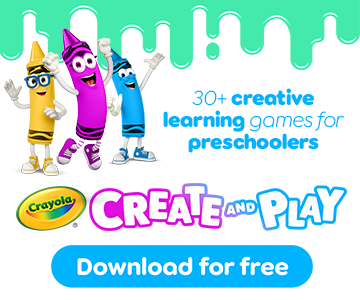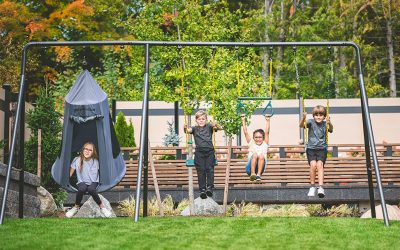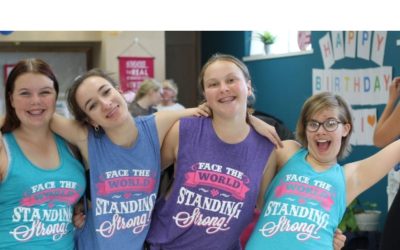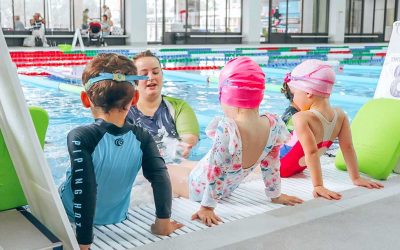From soccer to salsa, gymnastics to guitar lessons, there is an ABUNDANCE of after school activities available for little ones today. But what is age appropriate and how do you get the most out of your busy schedule?
When it comes to kids’ after school activities, parents today are spoilt for choice. Whatever your child wants to try, there will be a class for it. And though you don’t want to oversubscribe your little one, getting them involved in a regular activity comes with many benefits… and they are never too young to start.
After school activities for 0-5 years old
One of the first activities that kids usually get involved in is swimming. Living in coastal regions, learning to swim is as essential as learning to walk and talk. There are many swim schools around, from those at the local council pool to private lessons. Look for an environment where children aren’t distracted with other classes or movement around the pool, and a low pupil to teacher ratio.
“A purpose-built pool is essential to keep a class moving,” says Chris Shapland, Group Operations Manager from Shapland Swim School. “A non-purpose built pool means children stand on a platform and wait their turn which restricts the movement of the child. A purpose-built pool with lots of different depths of water keeps a class moving; you can have all three beginners moving and gaining confidence rather than going one at a time.” He continues, “All Shapland pools are purpose built and have eight different depths that work to really accelerate a child’s confidence and control in the water.”
A significant amount of parent participation is expected at most activities until kids are around three years old, so be prepared to join in! And at this age it doesn’t matter so much about the specifics of the activity, its more about trying things out. Look for something that is fun and offers a wide range of movement and coordination.
“For preschool kids, look for anything that involves running, jumping, ball skills, coordination, group work and taking turns,” explains Paediatric Physiotherapist Claire Mahoney, from Osana Therapy.
Activities at this age are also about getting you (yes you!) out of the house and socialising with other parents in the local community, so choose something that you will both enjoy. This could be an art and craft group, a music and movement session, or a preschool team sport. If you are unsure where to start, many playgroups have visiting activities each week, which is a great way to try different things and meet people at the same time. Alternatively, check in with your local council, where you’ll find a range of creative and sporting activities for babies, toddlers and pre-schoolers.
After school activities for 6-10 years old
Similar to the preschool years, the primary years are a time to develop those core skills of strength, coordination and confidence.
“For primary kids, again, any after school activity that uses a variety of skills is great – ball skills, strength work, teamwork,” explains Claire Mahoney, “and mostly what they enjoy. Every child has different likes and dislikes, so it’s about doing something they find interesting.” So, if they like being outside, try a ball sport; if they prefer being indoors try dance or martial arts.
If you aren’t sure what to choose, try something such as athletics that has a variety of different activities, or an all-rounded sports programme that rotates through a different sport each week. Testing out a different activity each week might give your child enough exposure to one sport to then move on and concentrate on that sport alone, or they might enjoy staying in the rotation programme… either is fine! “If in doubt, keep it varied, keep it fun, and look for activities that grow strength and coordination and confidence,” says Claire.
Benefits of team sports
As well as increasing fitness, coordination and being active, team sports have many other benefits, which include:
- Teaching kids to lose and win graciously
- Developing cooperation and leadership skills
- Kids who play team sports are less likely to feel isolated
- Can help kids overcome shyness
- Teaching kids to work as a team
- Giving kids a sense of belonging
- Making kids more resilient through shared wins and challenges
- Helping develop friendship and camaraderie
- Giving kids an appreciation of different abilities
- Boosting self-esteem
Keep it fun!
After school activities are all about fun and enjoying what they do. “Sport for kids isn’t competitive,” says Claire, “so don’t put too much pressure on them. Emphasis shouldn’t be on competing and winning, but looking at it as fun activity.”
As well, don’t oversubscribe your child, or yourself – these activities are supposed to be fun for everyone! Look to do activities with other children at school so you can share the load of the driving, and they also have a friend alongside!
When a child wants to quit…
Whatever you choose, there will possibly come a time when your child simply doesn’t want to go to their activity. But before they quit, take a look at why they no longer want to participate. Claire explains that kids are more likely to give up when things get tough. “If a child isn’t enjoying the sport, is it because they don’t like it, or is it because they find it hard?”
She suggests working on improving their skills first before they drop the activity. “If a child finds sport hard there is a reason for it. Are they clumsy or not able to keep up? Maybe tripping over, or not catching as well as they should, then it’s worth seeing a physio to check and help with their strength and coordination. They might have low muscle tone, their feet might not be aligned, or simply not have the strength for that sport. With a few months of specific exercises to help with their strength and coordination they might find that they enjoy it when they then return to the sport.”
What to look for in a sports activity
- Strength
- Coordination
- Balance
- Social skills and taking turns
- Confidence building
- Fun!
After school activities recommended in your area
SUNSHINE COAST
Adventure Empire: More than after school care, Adventure Empire offers a range of fun, social outdoor recreation activities to challenge and reconnect our youth to the great outdoors.
Alegria Rhythmic Gymnastics: Sunshine Coast’s only dedicated rhythmic gymnastics club offering recreational, school-based and competitive training options for all ages for all abilities.
Amy Beccari Dance School: A family conscious, fun and relaxed dance school that provides top quality tuition from caring, devoted and experienced teachers.
Dance Edge: One of the Sunshine Coast’s leading dance schools with classes from age 2 to adult, and catering for all levels and abilities.
Dance Empire: Classes from 16 months through to 8 years old, Dance Empire runs Kinderballet accredited classes, introducing little ones to classical ballet, developing gross motor skills through imagery and storytelling.
Infinity Martial Arts: With several locations across the Sunshine Coast, Infinity Martial Arts offers Brazilian Ju-Jitsu classes to ages 2 to adult.
Matt Fiddes: Classes from 3 years through to adults, Matt Fiddes schools incorporate a range of techniques and styles for a well-balance self-defence system. Several locations across SE QLD.
Mainly Music: A fun music session for families with young children with groups across the region. Sessions are full of fun, educational musical activities to grow and develop your child.
Noosa Regional Gallery: Noosa Regional Gallery offers a weekly after school programme to promote creative learning and develop artistic skills.
BRISBANE & GOLD COAST
Aquatic Achievers: A babies and toddlers learn to swim program built on the heritage of almost 40 years of operating swim schools in Australia. The schools are focused on delivering progress in a fun and engaging learning environment, helping your child to get the most from their weekly lesson. Aquatic Achievers operates swim schools across Brisbane.
Delta Gymnastics: Fun progressive gymnastics classes to get kids aged 18 months to 9 years moving with confidence. With an unparalleled level of care for every child they cater for children of all ages and abilities – from toddlers and school kids to competitive and elite gymnasts.
Fame Theatre School: Fame school of performing arts offers a range of quality training programs to children aged 3-17 years throughout greater Brisbane. The performance-based programs include training in dance, drama and voice.
Flipside Circus: Queensland’s largest youth circus company, providing opportunity for young people to take risks, trust, dream and aspire, work hard, laugh and have fun!
Forte School of Music: Experience music lessons at their best. Guitar lessons, piano lessons, singing lessons, drum lessons, baby music, music for kids, music for adults, you’ll find it all at Forte School of Music.
Matt Fiddes: classes from 3 years through to adults, Matt Fiddes schools incorporate a range of techniques and styles for a well-balance self-defence system. Several locations across SE QLD.
Speak Up: Exciting and engaging drama programs that build confidence and encourage children to be positive about speaking up.
For more after school activities, visit our Extracurricular Directory!






